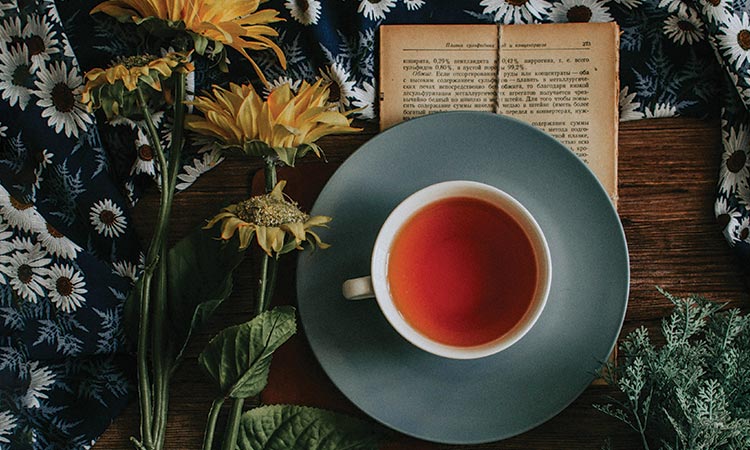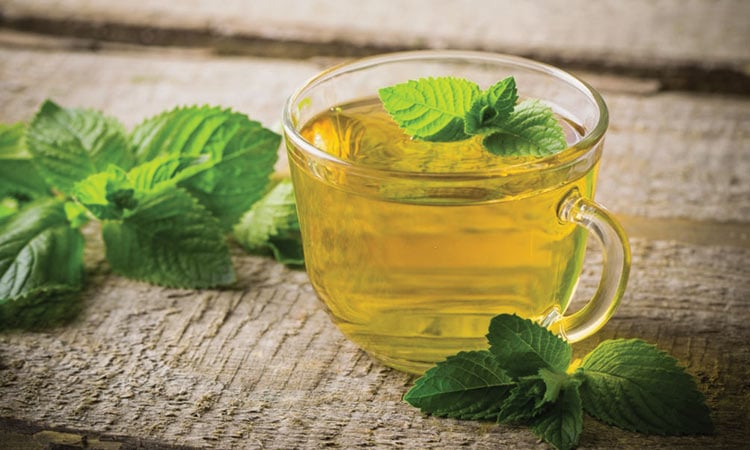If you are a tea lover like me, you must have wondered if drinking tea during pregnancy is safe. Infact, “what teas are safe to drink while pregnant?” is one of the most discussed topics in many pregnancy forums. And my guess is there are many like me!
Drinking different varieties of tea with different aroma and taste helps the expecting mother to chill out. But not all the teas are safe during pregnancy.
Drinking Tea During Pregnancy
Drinking tea during pregnancy is beneficial in many ways. Just because tea contains caffeine, and because excess caffeine is bad during pregnancy, one should not have to avoid tea totally during pregnancy.
According to NHS, daily caffeine consumption of pregnant women should be limited to 200mg. If you avoid all other caffeine products like chocolates, cola, and coffee, you can safely have two cups of tea. One cup of tea contains roughly 75 mg of caffeine.
Rather than sticking to the same tea, try to drink a variety of different teas. This way you can reap the benefits of different herbs used in tea. It also keeps you away from the side effects of prolonged consumption of the same composition.
Type of teas
Tea can be made from n number of plants. Leaves, flowers, bark, and even the roots of many plants are used to make tea. Teas are also made by mixing different herbs and spices with the main leaf. This enhances the flavor and benefits of tea.
Tea can be broadly divided into two: real tea and herbal tea. The real tea is the milk tea made from the leaves of the normal tea plant. Even black tea and green tea from normal tea plant are also considered as real tea.
Herbal tea, on the other hand, comes in numerous varieties and combinations. Herbal teas are made from various parts of various plants. It is made from the stem, leaves, flowers, berries, bark, root, or skin of various plants.
Calculate Due Date With LMP
Drinking Herbal Tea During Pregnancy

Mostly herbal teas are safe and beneficial during pregnancy. But it is always important to limit it under the recommended dosage. It is actually a wise choice as it is far better than other caffeinated beverages.
Original herbal teas contain zero caffeine. To be sure, always check the caffeine content in your tea. Its flavor and aroma will be appealing to expecting women. It is also rich in antioxidants. Herbal teas carry all the goodness of the herbs it is made from. When it comes to herbs, it is imperative never to exceed the recommended dosage during pregnancy.
Some herbal teas also help in reducing stress, bringing down morning sickness, and even prepare the uterus for labor. Therefore some herbal teas that are advantageous during the third trimester may not be safe to have during the first trimester.
Some teas that are not safe during pregnancy are licorice tea, rosehip tea, hibiscus tea, chamomile tea, dandelion tea, tulsi tea, etc.
Given below are some teas that is considered safe during pregnancy.
Teas That Are Safe To Drink While Pregnant
So now lets discuss which teas are considered largely safe during pregnancy. Nevertheless, it is wise not to stick to the same tea and have it once or twice a week rather than every day. Those who are having high-risk pregnancies should only have it with a doctor’s permission. Pregnancy is not the time to try anything new without asking for your doctor’s recommendation.
1. Cinnamon tea
Cinnamon tea is safe during pregnancy. According to USDA, up to half a teaspoon of cinnamon will not bring about any side effects. Only a little amount of cinnamon is used in making cinnamon tea.
More often cinnamon tea is mixed with lemon or honey to enhance its taste the amount of cinnamon per cup will not cross the recommended moderation intake. According to nutritionix, One cup of cinnamon tea contains merely 2.4 calories. It also contains traces of potassium, calcium, and iron.
Considering the benefits of consuming a moderate amount of cinnamon during pregnancy, you can have cinnamon tea during pregnancy. But have it only a couple of times a week, rather than every day.
2. Normal tea

Even though it contains caffeine, limited intake of normal teas like black tea, green tea, Indian tea like chai is generally considered safe during pregnancy. The level of caffeine in normal tea depends on how you prepared it.
How much time you boil the water after you put in tea leaves, the size of tea leaves, how much dust you used (if you are using dust), steeping time, everything matters when it comes to the caffeine content of your tea.
Caffeine content is high in black tea than in green tea, making green tea a healthier choice. Herbal teas, on the other hand, contain a negligible amount of caffeine making it a safer option to consider during pregnancy.
However, during pregnancy, it is important to limit the consumption of tea to 2 to 3 medium cups. Also, try to choose decaffeinated varieties. It will help you to enjoy the tea without the tension of caffeine.
3. White tea
White tea is made from immature tea leaves that haven’t been fully opened. It is less processed and it has not oxidized as much as the normal tea leaves. As the oxidation increases the leaves become darker.
Antioxidants and antimicrobial properties of white tea are beneficial for expecting mothers. Because of these properties, expecting mothers can have white tea can in moderation. Opt for plain white tea rather than an herbal tea mixture to reap all its benefits.
4. Red raspberry leaf tea during pregnancy
Red raspberry leaf tea is the tea made with the leaf from the red raspberry bush. The leaves to make tea are gathered before the raspberry plant blooms. These leaves are well dried
Many women confuse this with red raspberry tea. This tea is just a black tea with a raspberry flavor. Raspberry leaves tea, on the other hand, doesn’t have a berry flavor or taste.
Raspberry leaf tea is rich in immunity-boosting nutrients. It is considered a uterus superfood. It strengthens the uterus and helps with the easy progression of labor.
Even though strengthening of the uterus is beneficial during the early months of pregnancy as it brings down the chances of miscarriage, raspberry leave tea is not recommended for women in their first trimester.
To be on the safe side raspberry leaf tea is recommended only in the second third trimester and third trimester. Even in the second trimester, it is not wise to have it every day. It can trigger Braxton hick’s contraction.
According to NHS foundation trust expecting mothers can start having raspberry leaf tea from the 32nd week of gestation if the intention is to ease the labor. Start with one cup every day and eventually increase it to three cups per day.
This will give sufficient time for the ingredients in raspberry leaves that promote labor to accumulate in the body.
However, in the case of strong Braxton Hicks contractions after drinking the raspberry leaf tea, especially during the second trimester stop taking it. Steer from this tea if you are expecting twins or having any underlying health issues like high blood pressure.
5. Peppermint leaf tea during pregnancy

According to studies peppermint tea is one of the frequently used herbal tea during pregnancy. The strong aromatic flavor of the peppermint tea helps to ward off morning sickness and also tends to be more appetizing when the taste buds are so sensitive.
Peppermint has a cooling property, so is peppermint tea. It helps to soothe the stomach and ward off digestion issues. The antispasmodic property of peppermint tea helps to reduce breathing issues. It also helps to ease cold and flu.
The natural sedative property of peppermint tea makes it an excellent choice to relax and reduce stress during pregnancy. But expecting mothers with heartburn or acid reflux must steer away from peppermint tea since it may aggravate the symptoms.
During pregnancy overconsumption of peppermint tea can potentially bring about many issues like uterine contractions. To avoid overconsumption, make sure you are using no more than 1 gram of peppermint leaf and you are boiling it in around 150 ml of water.
One gram of dried peppermint leaves equals one tablespoon. You can have one to two cups of peppermint tea per day during pregnancy.
6. Ginger tea during pregnancy
Moderate intake of ginger tea has many health benefits during pregnancy. It is predominantly advantageous during the first trimester. Research shows that ginger is excellent to bring down the severity of morning sickness.
It is suggested that a pregnant woman should not consume more than a gram of powdered, grated, or any form of ginger. It aids digestion, enhances immunity, and helps to maintain blood sugar levels during pregnancy.
You can also add other healthy ingredients like clove, honey, or lemon, to ginger tea to increase its nutritional value and to enhance its taste.
Related Reading: Ginger During Pregnancy- Is It Safe
7. Guava tea
Guava leaves are beneficial during pregnancy. It is a good source of folate and vitamin C. It helps fetal development. It helps to ward off digestive issues like heartburn and constipation, two common issues during pregnancy.
One of the best ways to obtain these benefits of guava leaf is to consume guava leaf tea.
Conclusion
Herbal teas, as you see are not tea in the real sense. Real teas are derived from the leaves of the tea plant Camellia Sinensis. On the other hand, herbal teas are derived from the non-tea plant. It is an infusion made by boiling leaves, fruits, bark, roots, or flowers belonging to almost any safe-to-eat plant.


